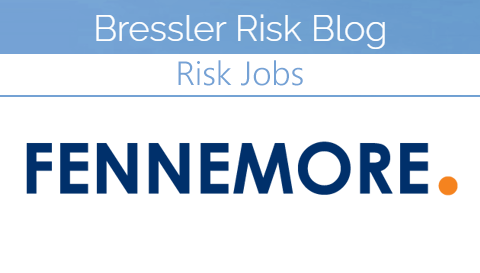Conflicts — Talc Judge’s Past Work Raises Conflicts Concerns, Privileged Information Provokes DQ Motion, ICC Conflict Allegation Leads to DQ Motino
Posted on
“J&J Talc Evidence Gets Review by Ex-Judge at Drugmaker Law Firm” —
- “A retired federal judge will help decide the fate of thousands of Johnson & Johnson baby powder cancer lawsuits even though her law firm represents the drugmaker in other matters. Freda Wolfson was appointed earlier this summer to re-examine how experts analyzed some scientific evidence on the link between J&J’s talc-based powder and cancer. She has deep expertise after conducting a similar inquiry while overseeing suits accusing J&J of hiding its baby powder’s health risks.”
- “The 71-year-old former judge supervised the consolidation of the federal cases for seven years before retiring in 2023 and joining the New Jersey-based law firm of Lowenstein Sandler. That firm represented the J&J unit that first filed for bankruptcy in 2021.”
- “So-called special masters like Wolfson seldom draw public attention, but her role is in the spotlight because conclusions on expert analysis could bolster or doom plaintiffs’ chances of winning big verdicts against J&J. The company already has paid out billions of dollars in damages in state court trials over claims its talc powder caused cancer — a contention that the drug maker has consistently denied.”
- “U.S. District Judge Michael Shipp in Trenton — who inherited the sprawling baby powder litigation from Wolfson — determined before naming her as a special master that she doesn’t have a conflict of interest under federal ethics rules. Shipp found she disclosed her law firm’s ties to J&J and walled herself off from colleagues who work on ‘wholly unrelated’ company matters. Wolfson will evaluate expert evidence that surfaced after she okayed the science underlying the litigation in 2020.”
- “While lawyers on both sides consented to Wolfson’s role and agreed to split her fees, some legal scholars say the appointment is troubling because of the firm’s ties to J&J.”
- “‘It’s really not a good look to pick someone whose law firm represents J&J – even if it isn’t in the baby powder cases,’ said Carl Tobias, a University of Richmond law professor who teaches about product-liability cases. ‘You don’t want to have any appearance of conflicts when it comes to making recommendations on whether these cases should go to trial.'”
- “Wolfson said in an email her prior management of the cases and familiarity with the proper standards for expert-witness testimony makes her well-positioned to review the new evidence. ‘To the extent any potential conflict could be perceived, the parties expressly and knowingly waived any such objection,’ Wolfson said.”
- “The fact that Lowenstein Sandler represents J&J in corporate matters not related to talc doesn’t pose a conflict in the baby powder cases, she said in a June affidavit. A spokesman for the law firm wouldn’t specify what types of cases it handles for J&J.”
“Duterte victims’ lawyer no objection to DQ bid vs ICC prosecutor” —
- “The camp representing victims of the bloody drug war carried out under then-president Rodrigo Duterte said it has no objections if the International Criminal Court (ICC) disqualifies the lead prosecutor who investigated the killings, in line with the ex-leader’s petition.”
- “‘In the case of the Philippines, even if Khan is removed, there won’t be such serious [ramifications],’ human rights lawyer and ICC assistant to counsel Kristina Conti said in an interview Sunday.”
- “Conti made the remark after Duterte’s lead counsel, Nicholas Kaufman, petitioned the ICC to disqualify chief prosecutor Karim Khan, citing concerns over impartiality.”
- “Kaufman told the ICC that Khan had prior involvement in a similar case, representing drug war victims in his capacity as a private lawyer. Details of the defense’s submission were largely redacted, making the timeline unclear.”
- “The defense argued that Khan must be disqualified under Article 42(7) of the Rome Statute, the ICC’s founding treaty, which bars prosecutors from participating in a case where their impartiality might reasonably be doubted. The rule applies if the prosecutor was previously involved in the same or a related case involving the person under investigation.”
- “Conti said that Khan’s current leave due to allegations of sexual misconduct would not significantly impact the legal battle, as deputy prosecutor Mame Mandiaye has taken over to ensure proceedings continue. She also acknowledged Kaufman’s points, saying she had no knowledge of Khan’s alleged prior involvement in an identical case.”
- “Kaufman claimed Khan failed to disclose this ‘blatant conflict of interest’ from the start of the probe until the ICC Pre-Trial Chamber issued a warrant against Duterte on 6 March, questioning the prosecutor’s impartiality.”
- “Khan became chief prosecutor in 2021, succeeding Fatou Bensouda, who began the preliminary probe in February 2018. The investigation officially began on 15 September 2021 but was deferred two months later at Duterte’s request.”
- “In ICC proceedings, victims have an independent role separate from the prosecution. They are represented by a legal representative provided by the court, who may present victims’ views and call their own witnesses, which could include state officials.”
- “Earlier, Conti noted that the ICC may call ‘insider witnesses’ against Duterte, including police officers and other law enforcers — a common practice in international tribunals.”
- “Duterte, 80, has been detained at Scheveningen Prison in The Hague, Netherlands, since his arrest in March in Manila. He is awaiting confirmation of charges on 23 September for one count of crimes against humanity over killings recorded from 1 November 2011 to 16 March 2019, spanning his time as Davao City mayor and president.”
“Workday Wants Firm DQ’d Over Privileged Info In Atty’s Suit” —
- “Attorneys at Webb Law Group APC should be disqualified from representing an ex-Workday Inc. attorney in his bias suit against the company and should face sanctions for their ‘egregious behavior’ in disclosing privileged information in a publicly filed document, Workday told a California federal magistrate judge.”
- “A draft of a proposed second amended complaint Anthony C. Hill’s lawyers at Webb Law shared with Workday during the course of his race and disability bias suit included privileged and confidential information that Hill learned during his work as senior counsel for Workday, the finance and human resources platform explained in a motion Tuesday.”
- “Even though Workday informed Hill’s attorneys that the draft amended complaint contained the privileged information and asked them to remove or redact it, they filed the complaint anyway, including the confidential information, the company said in a motion to disqualify and sanction Webb Law.”
- “‘Plaintiff’s attorneys were on notice that information contained in the SAC was privileged information plaintiff himself could only be aware of in the course of providing legal advice to Workday, they were given the opportunity to rectify the issue prior to filing, and instead of engaging with Workday on a matter as important as the attorney-client privilege, they intentionally filed the privileged and confidential information on the public docket,’ Workday asserted.”
- “Once the proposed amended complaint was filed, Workday asked Hill to file a motion to remove the incorrectly filed document, but Hill’s attorneys refused. When Workday contacted the court to request that the document be locked, those lawyers emailed the ECF help desk to demand that the document be made publicly available.”
- “Workday then moved to seal portions of the second amended complaint, but Hill opposed Workday’s motion despite conceding that it contained privileged information, according to the company.”
- “Webb Law’s actions over the course of the incident ‘appear calculated to cause injury,’ according to Workday, which said that Hill’s attorneys could have engaged with the company to resolve the issue, sought guidance from the court, or provisionally filed the proposed amended complaint under seal.”
- “But instead of taking any of these ‘reasonable, efficient and burden-free options,’ Webb Law chose to disclose the information in its filing and interfered with Workday’s steps to prevent public disclosure, according to Workday.”
- “‘The law is clear that where, as here, an attorney who comes into possession of an adversary’s privileged or other confidential materials uses such materials to gain advantage, including to prepare pleadings, the attorney is subject to disqualification,’ Workday said.”






